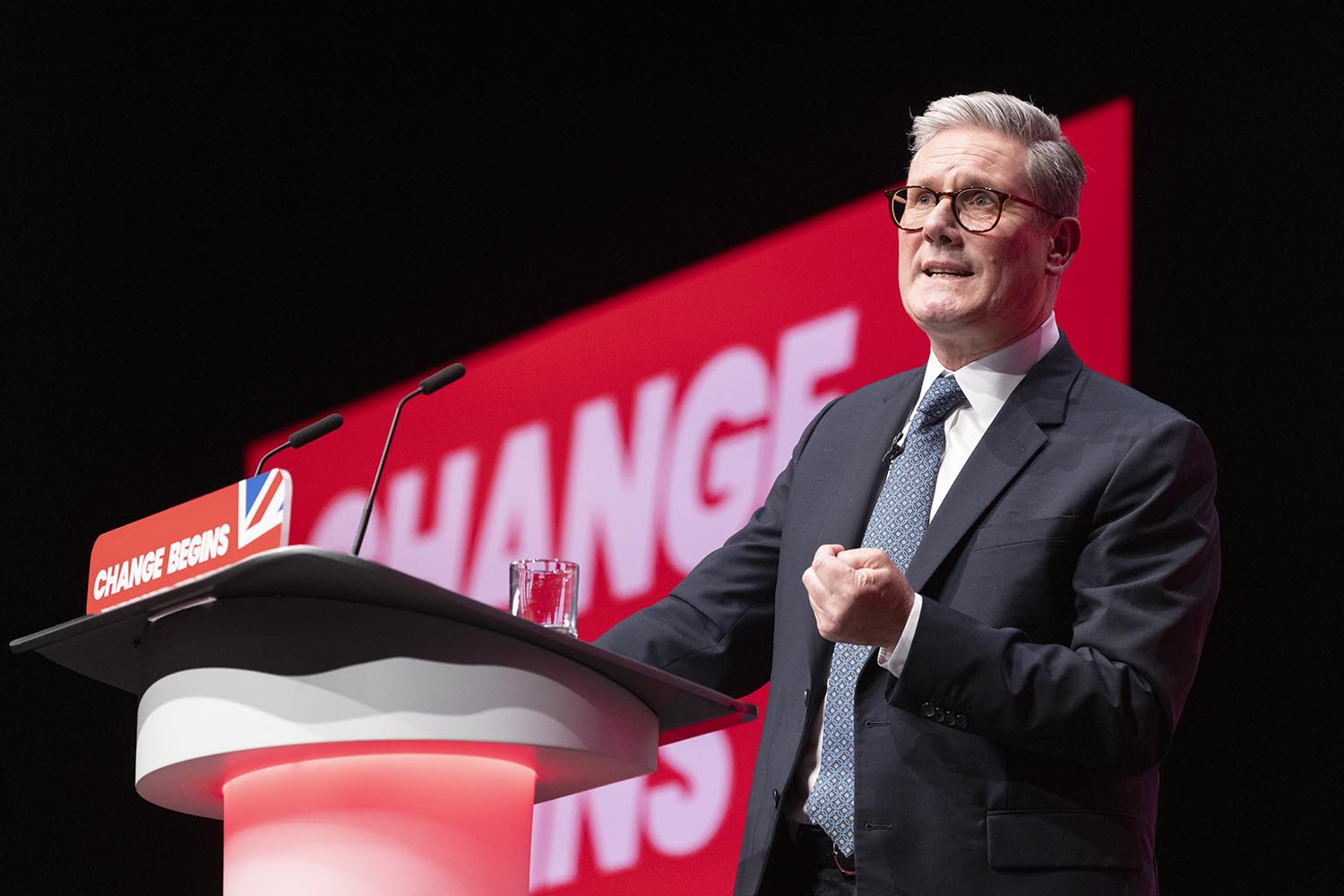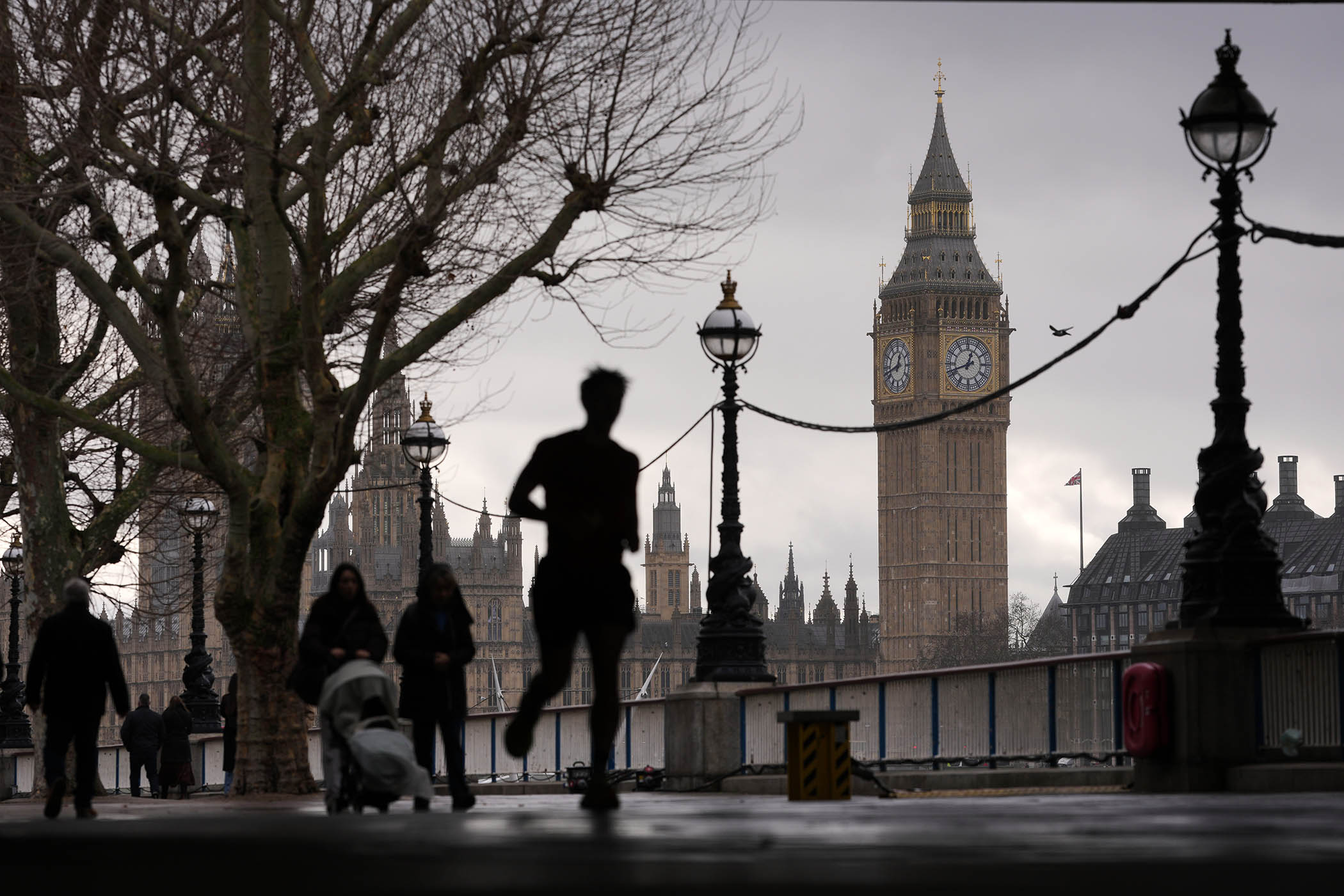At the summit of politics, August is the cruellest month. Time off beckons, but the world has a stubborn habit of going on. Britain’s entry into the Great War, the partition of India and the death of Diana all happened in an August. This year there is the looming threat of riots in the summer heat, it is hospitable weather for travel by small boat, and the vice-president of the United States of America is pottering around the Cotswolds. For the prime minister, August should mean working through the summer box, a period of serious reflection not very well dressed up as a holiday.
Every year at least some members of the class of commentators offer the lazy opinion that Starmer, or Badenoch, or whoever, faces the speech of their lifetime at the forthcoming party conference. Well, make no mistake about it: Keir Starmer faces the speech of his lifetime at the Labour party conference in Liverpool at the end of September. It is remarkable that a prime minister with a 174-seat majority should have the critics at his door feverishly suggesting that he might not fight the next election, but he does. He needs to bring this to a full stop.
Opportunities for Starmer to define his government have drifted in and out of focus: the opening days in office, the first budget, the investment summit, the unveiling of the industrial strategy have all come and gone unadorned by a story that lingers in the memory. This summer marks the start of the second political cycle of the term and heavy expectations now weigh on the conference to come. The preparation starts now.
The prime minister’s team are gathering their thoughts and writing up their counsel. The conference speech is a collective event. Speechwriter Alan Lockey will be joined by chief of staff Morgan McSweeney and director of policy Liz Lloyd in proposing candidates for the purpose and the central proposition of the speech. The policy leads will be charged with devising announcements that dramatise the argument and turn it into political retail. Various ideas – contribution, fairness, science and technology – are being auditioned to see if they stand up as the governing idea of the text.
Then the flood of unsolicited advice will come. During their summer downtime, all across Provence and Tuscany, putative contributors will be scribbling lines for the speech, as if the process of writing were to assemble the best unconnected passages from all the best-connected people. As chief speech writer to Tony Blair once upon a time, I recall receiving an emphatic memorandum from a celebrated Professor Dryasdust, which commanded me to have the prime minister say we should all be very proud of Shakespeare. I didn’t disagree as such, but I couldn’t see how to crowbar it into a speech on technology in a shrinking world. The summer box fills up with uninvited memoranda, of which this column is, of course, one. So, here goes.
Memorandum to the prime minister:
I know we don’t do God, but I would like to draw your attention to the book of Matthew, chapter 7, verse 2, which contains wise counsel for your conference speech: “For with the judgment you pronounce you will be judged and with the measure you use, it will be measured to you.” The government has previously asked to be measured according to five missions, six milestones and seven pillars, but a man with seven pillars has no priority. This speech needs to define the measures by which the government should be judged and, although I know it leaves a lot unsaid, those measures should number precisely three. Taken in combination they define your political purpose.
Reform is the small boats party. We need a contrasting image of a deep unruffled sea and clear blue water between us and Farage
Reform is the small boats party. We need a contrasting image of a deep unruffled sea and clear blue water between us and Farage
1. Living standards: no government is popular when household budgets are tight. We need to explain, better than we have done so far, how the animal spirits of a growing economy will be conjured into life by our policies on investment, science and technology and education, on which we need to leap forward from the blank space we are in.
2. NHS: the most important measure of success which is directly in our gift to change is the length of waiting lists in the NHS. If we can say, in time, that your wait is shorter and you can get to see a doctor when you need one, the case for a Labour government will be potent. Besides, this gives us a chance to quote Nye Bevan, and conference can never resist that.
3. Small boats: there are foreign policy questions that we need to tick off, but this section must conclude with a convincing passage on small boats. The Reform party is, essentially, the small boats party. The flow of boats across the English Channel is whole world view in a single image. We need a contrasting picture of a deep unruffled sea and clear blue water between us and Farage.
We have to decide which people, if any, are mentioned by name in the speech. I would suggest that Mikel Arteta should feature more often than Nigel Farage or Kemi Badenoch. You are the prime minister looking forward, not a party leader looking askance. It should be a mark of confidence that the prime minister has no need to waste words on politicians who are neither in office nor in power.
Finally, we need an idea to make it more than a list. This is the artificial but indispensable art of the conference speech. There is, in truth, no idea that stretches across NHS reform, the war in Ukraine, the future of council tax, import tariffs and the use of artificial intelligence. But you need to project strength. Strong opinions, strong ties. Even though times are hard, Britain has great strengths. Britain will remain strong in the world. Strong and its cognate terms drop into sentences naturally, and it is an idea that can be attached to policy areas that have nothing else in common. I think there’s a strong argument for it.
Photograph by Nicola Tree/Getty
Newsletters
Choose the newsletters you want to receive
View more
For information about how The Observer protects your data, read our Privacy Policy



